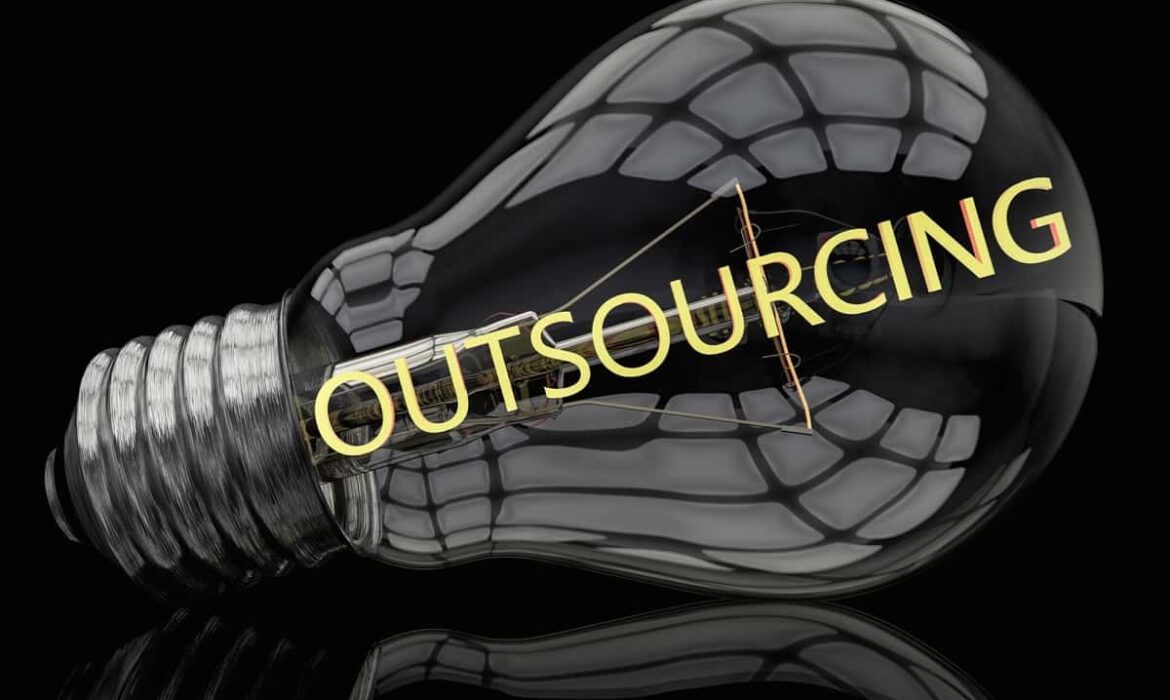Here are the Top DIY SEO Tips from Experienced Marketers
How long do bright ideas last?
For an experienced SEO specialist to discover a real innovation is rare. The word innovation suggests utterly new technology or techniques. What tends to happen in the field of search engine optimisation is that the discovery tends only to be unique to the one discovering it.
SEO Innovation is rare, and even then, rarely shared soon after discovery. As with all secrets, the information leaks slowly, then suddenly all at once. This spike in awareness is thanks to the viral nature of the internet. Once ‘everyone’ knows about a new technique and starts to use it, the effectiveness dwindles since a higher level of competition makes it harder to get to page one.
Then there’s the next consideration, whether the SEO innovation that you are learning about is applicable for your business:
- Some tactics and techniques are potent for a short period but then result in search engine penalties or de-listing.
- Other techniques work well in lower competition niches or local niches but not for a more significant niche or location.
- Some tactics involve a high cost and level of human resources that might not give a satisfactory ROI for you. These same tactics might be golden for plastic surgery, insurance or finance niches.
- Some tactics work well for one industry or location but are pointless for others. There’s no magic SEO bullet that works everywhere and for everyone.
- There are keyword density levels and backlink profiles that will help you rank in one niche, but make your website tank in another.
Did anything that you’ve just read confuse you at all? Perhaps not, but as you dig deeper into the world of SEO, you’ll potentially lose countless hours and get very confused. Often reading about things that you will never take action on, or that would help your business if you did.
You can quickly do some SEO Innovations on a DIY basis
This is the reason for this section of our website. We’ll publish posts about tactics and processes that are likely to be useful to you for your business.
Why do we know this? Because you’re likely to be in the energy industry. Search presence is our specialist area. We know what is expected to work for your website. Our confidence is based on years of extensive SEO experience, as well and almost as many working with clients just like you.
SEO Innovations for energy companies to maximise their online presence. These posts can give you help for your DIY SEO efforts, or you can leave it to us.
Either way, these posts will be explained in as simple terms as possible, and contain references and examples of companies like yours.
This list of innovations will grow over time
When this post was getting written, there weren’t any innovations mentioned at all — just a seed of an idea that would grow. Over the years, this post will get updated with an ever-expanding list of hints and tips. One day there’ll be plenty of SEO innovations that can help you in your online efforts.Most of these suggestions will not be innovations to SEO consultants. They might be innovations for your business, and changes that can easily be made by you, or your company webmaster or IT person.
Click on a box to open it and see the tip:
Check your keywords – Relevance over buzz!
Most business writers tend to include a lot of non-industry related buzzwords to make product or service descriptions more appealing. We want our customers to know that we’re ‘dynamic’, ‘energetic’, ‘professional’, ‘synergistic’ and perhaps ‘leading’ or ‘respected’.The problem here is that search engines will often struggle to identify what you do, and who you do it for if too many generic words get included. Any page, post, or bio needs to have plenty of specific (but varied) keywords in there.The added benefit is that a web surfer or time-constrained visitor can easily see what you do, and for whom you do it. You might have the perfect market solution. If it’s drowned out by phrases such as ‘step-change’ ‘forward-thinking’ or ‘head of its class’, then the visitor might not easily differentiate what you’re offering.
Ask existing clients/customers to help you
By definition, your clients or customers usually aren’t your competition. They’re likely to also appreciate how hard it can be to get noticed online. You should be able to help each other out.
Think of online exposure swaps of similar value. They could write you a testimonial, and you can link to them when publishing it on your website. They could link to one of your articles in their blog, in return for you sharing their services on social media.
You have an area of reach online, and so does everyone you know. Reviews on Google, Trustpilot or on Facebook can help SEO. Any additional citation, review or link can help SEO, and directly lead to click through enquiries. Set aside time for mutual back scratching!
Get more social media exposure even in ‘boring industries’
Over time, we’ve seen plenty of social media trends, and have enough data to view insights. A couple of important observations are that in many industries, companies struggle to get organic growth; and that often, you need to ‘pay to play’ via advertising to gain traction.Did you know that only a fraction of your followers will see your posts on FB if you don’t pay to ‘boost’ them? Did you know that postings get lost in the ‘stream’ like a paper boat?One tip to help organic growth is to realise that in addition to being social media platforms, these websites are search engines too. When you search on LinkedIn or Twitter, you don’t leave the site and go to Google, do you?To leverage these search features, design or re-design your social media pages using keyword-rich text. Including your solution or a searchers question in the URL, description or name of the site can create a steady stream of followers.We created two oil and gas recruitment/jobs pages on FB within a month. A year later, with the same posts, one gained 1000+ followers, and the other has less than 50. That’s 20x the result by including the keyphrase ‘oil and gas jobs’ liberally. These followers came through search!
Give a boost to older content
Rather than thinking of new ideas for your content marketing strategy, see if you can optimise and update what you already published.Go to your Google Search Console, and look at all of your website pages that are on page 2-5 of the search results. Isolate the ones with decent search volumes or buyer intent keywords. Then, check the first-page competition and expand your pages to cover the topic better. Finally, focus your sharing, promoting and link building outreach efforts on these pages, make them into cornerstone content and main traffic drivers. Getting a couple of ‘out of the money’ pages to page one, will be far more successful than adding more pages to 2-5 or the results. Some of your earlier content will be more relevant and prized, worthy of invigoration.
Capture more online real estate
Some SEO hacks don’t involve doing anything to your main company website. When you search for a product or company, how does the first page of Google look? Sometimes we see competitors ranking higher, or even worse. Complaints!A smart business owner will want to capture as many of these top ten spots as possible. The easiest way of doing this is to create company profiles on websites that Google loves.You can create a profile on a few more of the big social media sites. You might think that your company isn’t relevant to Pinterest or Instagram, for example. But, with a bit of creativity, you can take another couple of slots on the top rankings of the search results.Another great idea is to look for business profiles such as the ones on Inc.com or Angel list. Here’s our profile on Angel List!
Hint: you can go there right now and create a couple of profiles!
Create mini niche sites for your products or services
As far as Google and the other search engines are concerned, they might see your main website in a macro sense. For example, you might get identified as ‘oilfield services’ or ‘solar panel retailers’. What are the chances of you getting to page one of a search for related terms? Unless your company name is in a similar class to Weatherford or Amazon, you’ll struggle to rank.If you drop down a few rungs on the ladder, then there are terms for which you can rank. For example, you can niche down to an area or region, or for specific product names or services. You can create new mini-websites that focus on lower competition keywords. These can still supply leads, or refer visitors to your main sales pages.Relevancy is vital in search. A small website with ten pages just about a single product or service will often rank better than a 1000 page website that discusses a wide variety of topics.
Replicate the back link profile of your competition
We all know that dominating the search engines is down to 3 main factors:
- Publishing great content.
- Gaining more high-quality backlinks than your competition.
- Being the biggest/best/most awesome in your niche.
For most SEO practitioners, backlinks are the number one priority.
The types and proportions of websites that link to other sites are different in each sector. Some major news and media outlets link out regardless of industry. But for your niche, there will be an ecosystem of links that your competitors have.
The only ones that matter is the inbound links to your top ten or twenty competitors. You can find these, put them on a spreadsheet, delete duplicates, then have a list of places that you need to build or earn links, to be number one.
The other 10, will have a Venn style crossover, but if you aim to get all of these domains linking to you, then how can you fail?You might have less of a brand footprint. Your company may not be quite remarkable enough yet. Having all of the same links as all your main competition is an unbeatable SEO innovation.How can you find your competitor’ backlinks? The best tool on the market for this is Ahrefs who offer an inexpensive trial.
Photo by Kristopher Roller on Unsplash
A Modern Outsourcing Definition
A Modern Outsourcing Definition
(To go straight to the outsourcing definition, scroll down half the page. This page will only take a few minutes to read, so we recommend reading it in its entirety!)
What’s your definition of outsourcing?
Is it where you get rid of an unwanted task inside your company, such as outsourcing the cleaning?
Does it describe the packaging and selling of tasks to an overseas company that has a much lower cost structure? For example, outsourcing business process tasks to India?
At OOTBI, we think that this old fashioned view of outsourcing is obsolete at worst, and at best, only hints at the topic. Since the industrial revolution began, many tasks have been outsourced locally because of the specialisation of labour.
Since globalisation became a buzzword in the 1970s, we came to think of multinational corporations employing cheap labour. National companies started outsourcing tasks to save money. The rationale might have been that employees in certain countries might do a job half as fast, or half as well, but cost only a fifth or a tenth of a local person.
This view was partly correct, but a bit nationalistic and racist as well. Now, in the 2010s, the gaps have narrowed:
- Wages are rising in the developing world, and stagnant in the developed world.
- Education is improving in the developing world to close the skill gap rapidly.
- Costs of materials, energy and resources are more homogeneous over time.
- The internet allows people to work as efficiently in different countries as in separate offices.
- We know that people of all cultures and races are capable of the same quality of work.
Bottom line, we see the definition of outsourcing from the industrial age or even the information age as inaccurate.
Fun fact: OOTBI is a remote working company. We opened a physical office, then closed it again after a year because we didn’t see any benefit. Why search for web developers in Exeter, UK, when our favourite go-to people are in Yerevan, Armenia?
Here’s our definition:

Outsourcing is where you carefully select partners that can assist in your business objectives. The reasons may vary, perhaps the outsource partner can do the task cheaper and more efficiently.
Perhaps they are specialists, so you outsource, not to save money – but to get a higher level of skill and experience set to achieve the task at hand.
The best type of outsourcing is where you bring in a strategic partner that fills knowledge gaps in your organisation. The outsourcer will help bring synergy, focus, and market-trouncing advantages to your company. The net result will be a combination of higher market share, lower costs, and a better top and bottom line.
This concept exemplifies how we see ourselves at OOTBI. We can’t do your job as well as you can, but we can amplify your companies profile online.
With radio, TV and other traditional media losing influence and market share all the time, your online message should be your marketing focus. Your current client portfolio and staff are probably your main business assets. Fast-moving technology means that your business could be completely different in five to ten years.
When the generation that has grown up with smartphones, tablets and other technology, become company decision-makers, how will they be doing it? With augmented reality (AR) glasses? Will they be flying into your home town to visit personally? Who knows, perhaps there will be holographic conference bots to do the selling for you?
One thing is for sure; your online real estate is at least as necessary as your physical one. It might not seem that way now, but why not prepare for the future. After all, investment into online property is a fraction of the cost of the molecular alternative.
With brick and mortar real estate, we hear the phrase ‘location, location, location’. Online, our location can be everywhere, all the time. Contact OOTBI to experience ultimate outsourcing defined, in the results that your business sees.
An OOTBI Crossroads?
NOTE: This post was written in July, 2017. There’s an update in July 2019 at the end.
This blog post relates to the near-term future
For me, Jason, and out of the box innovations. Those of you who know me understand my situation and the current company structure. I’m on the verge of a couple of big decisions. Those of you who do know me, know that I’m straightforward in my business dealings. What some founders or company representatives might deem as private, isn’t seen that way be me – if it affects my clients. Those of you who know me, I appreciate you, and you can skip the next section.
(For those who don’t know me)
Here’s a quick recap of the contextual background of what I’m about to say. You can then be up to date on the circumstances of the dilemma.
OOTBI is a limited company registered in the UK, but I reside between the UK and the Philippines. OOTBI is a remote working company, where we have outsourced contractors in different countries in three continents. I work from my Laptop and have until recently, chased the ‘location independent entrepreneur’ dream, or ‘lifestyle business’ philosophy.
Phrases like ‘oppression of an office cubicle’ and ‘work on your own terms’ had a significant impact on me. The novelty of these things certainly wear off, and over time, I have considered having a permanent office. A permanent residence, close to all of my family, not just my wife and children also appeals.
Those who know me can re-join here
So, recently, I’ve been thinking some serious thoughts about the future.
- How many potential clients have become discouraged when they realised I was in a developing country?
- How many potential clients have been dissuaded by the fact that I don’t have an office?
- How would I have focused if I had a regular work routine, in a stable environment?
- Working in a physical team can be distracting, but it can be motivational too, and no solopreneur loneliness.
Hmmm…
Do I get an office? If so in which country? Will I keep outsourced staff?
You’re probably aware, OOTBI helps small to medium-sized energy companies with their online presence. That’s a reasonably narrow market sector for an industry like web design or SEO.
It’s even more niche than you might imagine. Due to user-friendly content management systems like WordPress, or DIY companies like Squarespace, anyone can put up a website. Many energy companies don’t need to expand their web presence. They trade through local networks, and they have a website because everyone has a website. I doubt that there’s anything that I could help Solar City or BP with when it comes to marketing.
Our market is small, but OOTBI has traded steadily and expanded in the last two years. How would we be doing with a brick and mortar office based in a major UK city? The same number of clients? I guess that we’d be a more significant company.
Do you believe in serendipity? The law of attraction? I think there is something to it, even if it is only related to focus, and what we notice in different mind states. A tempting example has just happened in my life.
So, I was thinking, if I get an office, how much cash would I need for deposit and advance rent, furniture and so on. I was wondering how many current clients are long term, and how many new ones might join if I had an office. Then within a few days, I started noticing funding ideas.
My regular bank offered us a loan, that might not seem strange, although OOTBI is at the end of its first two years as a start-up. The bank didn’t offer us a loan before. I investigated, and they want a business plan and some detailed financials, which is a bit of a distraction during a busy time.
Then straight after, a new business associate suggested that I check out Capital Match. I took a look at their application page and I could apply and get an answer in a few days.
It’s a Singapore based company, so while that makes a bit of sense while I’m in Asia. If my office ends up in the UK, then it might add some complications.
Hey – serendipity, prove you’re real and offer me an even more accessible and more suitable option, please. Preferably interest-free!
So, if you’re a potential client that has reservations about dealing with a remote working company, or with a location independent entrepreneur, please reach out. If you’re an existing client, who thinks that it doesn’t matter, or prefers things as they are then let me know too.
These types of topics are important and relevant to many of us in our businesses, so I hope you appreciate the openness here. No imminent decisions at this time, but I plan to write a few more ‘open the Kimono’ type posts like this.
UPDATE:
It’s now July 2019 and two years since the original post. I’m now settled back in the UK with my wife and children.
We rented an OOTBI office for a year, and then relinquished it. I’d forgotten about the problems with commuting, lunch, following rules, filling in paperwork, and general freedom cramping constraints.
We didn’t borrow any money, preferring to bootstrap. Too many people get themselves into debt chasing business dreams. OOTBI is free to grow or stay the same, pivot into new products or services, and grow with re-invested profits rather than debt shackles. Yeah, I’ve read the Rich Dad Poor Dad books, I know about ‘good and bad bebt’. Right now, it would be bad debt.
Online Marketing Agency – No Social Media?
Online Marketing Agency – No Social Media?
October 2019 UPDATE: Out of the Box Innovations was registered in August 2015. This article was written in July 2017 to explain why we didn’t create any social media pages for our business. Now, in October 2019 we’ve set up new LinkedIn, Facebook and Twitter accounts. Here’s the quick answer as to why:
LinkedIn: Much of our prospective audience chooses LinkedIn to spend a lot of time online. Our networking and outreach efforts are starting to bear fruit there. It’s convenient for people who want to find out more about us to do it on the LinkedIn platform. They’re more likely to explore us there than take the time to search for our home site. If a social media network is working, spend more time on it!
Facebook: We’re in the process of creating a new service for our clients – Managed AI Chatbots! We’ve created the first couple in beta mode and will be adding one here soon. We’ve chosen Messenger based bots, to begin with, and will add other integrations over time. We need a company FB account to connect a messenger bot.
Twitter: Since we’re going to get more active on LinkedIn and Facebook, we may as well add Twitter, since many of our posts will get posted from a social media management dashboard. We see possible growth and collaboration opportunity on Twitter, so we can be in the third most important online ecosystem for our niche.
We’re leaving the original explanation below as to why we chose not to create social media pages earlier. Partly for posterity, to track our journey, but mainly because this page gets visitors who are in the same dilemma as to whether they need social media pages.
Why don’t we have our own social media pages?

Hi, this is Jason, the Founder of OOTBI. You might wonder why the connected Twitter and LinkedIn links at the bottom of this page, go to my profiles, not an Out of the Box Innovations company page? Surely every company needs social media pages – don’t they? How can we offer social media management as a service, when we’re not doing that ourselves?
This post will go over the reasons why we’ve decided to avoid having social media community or fan pages. Hopefully, you’ll understand our position, and perhaps it might help you in your business. While we may create some company pages later, for the time being, we see it as a net negative.
Here are the reason why:
Most of our client business is transient
Once we’ve created a new website for an oil and gas company or got a local solar installer to page 1 of Google, our job gets temporarily done. How many decision-makers in energy companies want to follow an internet marketing blog? Not many.
Our regular clients don’t want to learn how to do what we do
That’s why they’re paying us! They come to us to complete a contract, to their satisfaction (for a great price). They don’t want to know the ins and outs of SEO or web design.
Do you follow the Facebook page of your local dentist, to keep up on dentistry? Do you spend hours chatting on Twitter to the people who helped you to move house? Unlikely. For formal business arrangements, why follow on social media?
We’re too busy working on YOUR social media pages
Just like a skilled mechanic who drives an old car, we always put our clients needs first. There aren’t enough hours in the day to allocate some to what is a very labour intensive activity.
One day, we might have extra human resources and revisit the idea of running another bunch of social media pages. At that time, there are likely to be better avenues to deploy our additional capacity.
In the energy industry, people prefer to interact with people
Every industry is different, and then the same applies to each sub-sector too. We’ve noticed that oil and gas and energy workers are quite active on LinkedIn. They chat to each other though, and most company pages ought to have a background image of crickets or tumbleweeds!
If you came to us for a social media campaign, we’d look very carefully into whether it was even worth it for you. Again, it depends on what you do and for whom you do it. The most significant industry players have active social media pages because of the sheer numbers of people who know of them.
For most of the SMEs that we deal with, a paid & well-targeted social media advertising campaign might produce a high ROI. A fan page or a community page? Not so much.
Inviting you to connect with me personally is more appropriate
The majority of our clients work with us on a contractual basis and want the result, that’s it. A portion will become friends, and I welcome new connections. I receive direct messages through the social media channels for which my clients (and friends) have a preference.
Also, when someone is looking for an online agency, they want to know who’s behind the company and whether they’re accessible. You can connect with me, and message me through email, LinkedIn, Twitter or Skype. This strategy means that you always have access to the person ultimately responsible for the contract that you enter into with OOTBI.
So, does this answer your question?
Out of the Box Innovations is very important to me, and so are my clients. A personal relationship is welcomed, but not the most crucial aspect of what we set out to achieve. I am, and I always plan to be the face of the company and be extremely accessible and accountable to you.
If you want to connect, with me, scroll to the bottom of the page, and there are some links.
Cheers,
Jason





